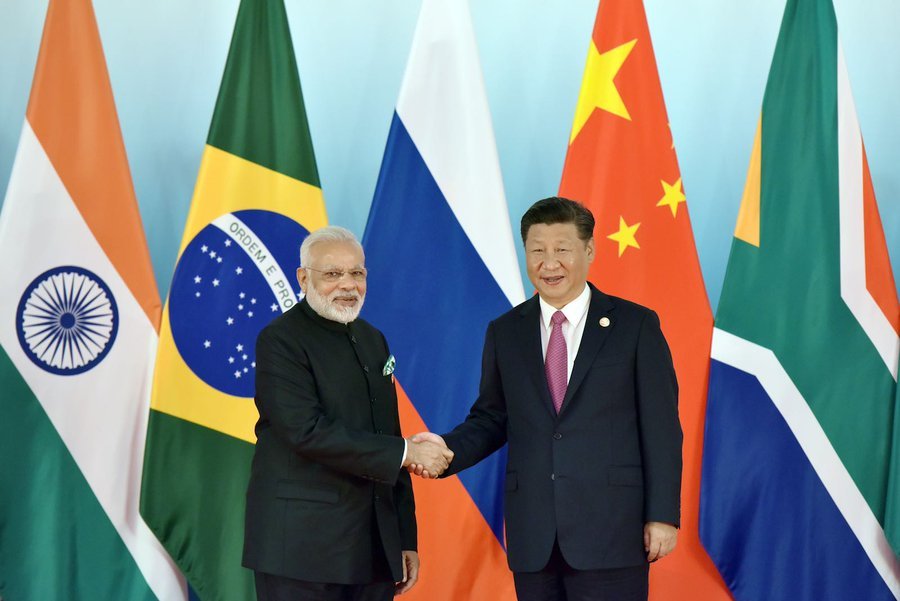The multipolar world will be born when the geopolitical weight of Asia, Africa, and Latin America matches their rising economic weight.
Writing in his cell as political prisoner in fascist Italy after World War I, the philosopher Antonio Gramsci famously declared: “The crisis consists precisely in the fact that the old is dying and the new cannot be born; in this interregnum a great variety of morbid symptoms appear.” A century later, we are in another interregnum, and the morbid symptoms are everywhere. The US-led order has ended, but the multipolar world is not yet born. The urgent priority is to give birth to a new multilateral order that can keep the peace and the path to sustainable development.
We are at the end of a long wave of human history that commenced with the voyages of Christopher Columbus and Vasco da Gama more than 500 years ago. Those voyages initiated more than four centuries of European imperialism that peaked with Britain’s global dominance from the end of the Napoleonic Wars (1815) to the outbreak of World War I (1914). Following World War II, the US claimed the mantle as the world’s new hegemon. Asia was pushed aside during this long period. According to widely used macroeconomic estimates, Asia produced 65 percent of world output in 1500, but by 1950, that share had declined to just 19% (compared with 55% of the world population).
In the 80 years since World War 2, Asia recovered its place in the global economy. Japan led the way with rapid growth in the 1950s and 1960s, followed by the four “Asian tigers” (Hong Kong, Singapore, Taiwan, and Korea) beginning in the 1960s and 1970s, and then by China beginning around 1980, and India beginning around 1990. As of today, Asia constitutes around 50% of the world economy, according to IMF estimates.
The multipolar world will be born when the geopolitical weight of Asia, Africa, and Latin America matches their rising economic weight. This needed shift in geopolitics has been delayed as the US and Europe cling to outdated prerogatives built into international institutions and to their outdated mindsets. Even today, the US bullies Canada, Greenland, Panama and others in the Western Hemisphere and threatens the rest of the world with unilateral tariffs and sanctions that are blatantly in violation of international rules.
Asia, Africa and Latin America need to stick together to raise their collective voice and their UN votes to usher in a new and fair international system. A crucial institution in need of reform is the UN Security Council, given its unique responsibility under the UN Charter to keep the peace. The five permanent members of the UN Security Council (the P5) – Britain, China, France, Russia, and the United States – reflect the world of 1945, not of 2025. There are no permanent Latin American or African seats, and Asia holds only one permanent seat of the five, despite being home to almost 60% of the world population. Over the years, many new potential UN Security Council permanent members have been proposed, but the existing P5 have held firmly to their privileged position.
The proper restructuring of the UN Security Council will be frustrated for years to come. Yet there is one crucial change that is within immediate reach and that would serve the entire world. By any metric, India indisputably merits a permanent seat on the UN Security Council. Given India’s outstanding track record in global diplomacy, its admission to the UN Security Council would also elevate a crucial voice for world peace and justice.
On all counts, India is a great power. India is the world’s most populous country, having overtaken China in 2024. India is the world’s third largest economy measured at international prices (purchasing-power parity), at $17 trillion, behind China ($40 trillion) and the United States ($30 trillion) and ahead of all the rest. India is the fastest growing major economy in the world, with annual growth of around 6% per year. India’s GDP (PPP) is likely to overtake that of the US by mid-century. India is a nuclear-armed nation, a digital technology innovator, and a country with a leading space program. No other country mentioned as candidate for a permanent UN Security Council member comes close to India’s credentials for a seat.
The same can be said about India’s diplomatic heft. India’s skillful diplomacy was displayed by India’s superb leadership of the G20 in 2023. India deftly managed a hugely successful G20 despite the bitter divide in 2024 between Russia and the NATO countries. Not only did India achieve a G20 consensus; it made history, by welcoming the African Union to a new permanent membership in the G20.
China has dragged its feet on supporting India’s permanent seat in the UN Security Council, guarding its own unique position as the only Asian power in the P5. Yet China’s vital national interests would be well served and bolstered by India’s ascension to a permanent UN Security Council seat. This is especially the case given that the US is carrying out a last-ditch and vicious effort through tariffs and sanctions to block China’s hard-earned rise in economic prosperity and technological prowess.
By supporting India for the UN Security Council, China would establish decisively that geopolitics are being remade to reflect the true multipolar world. While China would create an Asian peer in the UN Security Council, it would also win a vital partner in overcoming the US and European resistance to geopolitical change. If China calls for India’s permanent membership in the UN Security Council, Russia will immediately concur, while the US, UK, and France will vote for India as well.
The US geopolitical tantrums of recent weeks – abandoning the fight against climate change, attacking the Sustainable Development Goals, and imposing unilateral tariffs in contravention of core WTO rules – reflect the truly “morbid symptoms” of a dying old order. It’s time to make way for a truly multipolar and just international order.
By:Jeffrey D. Sachs



